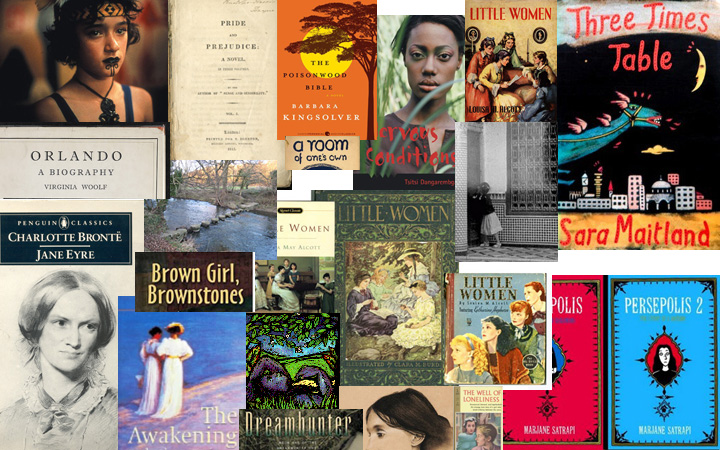| Ruth Feingold MH 122 x2109 rpfeingold@smcm.edu |
English 400.01 MW 2:40–4:30 LI 114 http://faculty.smcm.edu/rpfeingold |

The coming-of-age novel is a vibrant form that explores
a culture’s most basic definitions of what it means to become—and
therefore to be—an adult, an individual both within and independent
of society. As such, the coming-of-age novel is a genre that deals
with a universal human experience—but does it adequately represent
the experience of all humans? When asked to name a prototypical
coming-of-age novel, many people might suggest David Copperfield
or A Portrait of the Artist as a Young Man. These are both novels
with male heroes—yet throughout history, to be an adult man
and to be an adult woman have meant very different things. Until
recently, critics writing about the coming-of-age novel have tended
to ignore most novels that center on a female protagonist. In part,
this is because the developmental paths of heroines are often so
different from those of heroes that they can be unrecognizable to
readers looking for a familiar, male-oriented pattern. |
| Little Women (1868–69), Louisa
May Alcott, Broadview Pride and Prejudice (1813), Jane Austen, Broadview Jane Eyre (1847), Charlotte Bronte, Broadview Nervous Conditions (1988), Tsitsi Dangarembga Stones from the River (1994), Ursula Hegi |
Their Eyes Were Watching God (1937),
Zora Neale Hurston Whale Rider/Te Kaieke Tohora, Ihimaera/Caro (film) The Poisonwood Bible (1999), Barbara Kingsolver Three Times Table (1990), Sara Maitland Persepolis I & II (2003/2004), Marjane Satrapi + selected essays |
Stuff happens. While this schedule is accurate as of the beginning of the term, unexpected changes may occur due to illness, weather, etc. I’ll make every effort to keep this site up to date, as well as to announce any changes in class and over e-mail. It’s up to you to check your e-mail, and I do expect you to do so regularly (at least every other day). That’s my only real way of getting in touch with you outside of class, and I do use it fairly frequently. All written work must be submitted via e-mail as Word (.doc or .docx) or Pages files. For more information on papers, see my on-line FAQs. Due to the importance of turnaround time for the workshopping of term papers, late drafts will be penalized one full letter grade per day. No make-ups or late submissions are permitted for paper critiques. I take plagiarism extremely seriously. Intellectual theft robs the original author of his or her work; you of the learning you’re supposed to be here for; your classmates of the chance to have their work evaluated on a level playing field; and me of a tremendous amount of time and energy. Read the section on academic honesty in the student handbook, and familiarize yourself with its provisions. A failing grade for the semester is the minimum penalty for plagiarism in this course. If you have any questions or concerns—whether they be about texts, course procedure, or whatever—please bring them up in class, or talk (or e-mail) to me personally. As a general rule, I strongly encourage any form of communication. If you think the reading is going too fast, or too slow; if you’re uncomfortable with the dynamic in the classroom; if you’re unclear on my expectations for an assignment—please let me know. If I don’t know you have a problem, I can’t try to fix it. And on a more positive note, if you’re really excited about a book, or idea, and want to talk about it outside of class, please stop in! After all, I wouldn’t be teaching this class if I didn’t want to talk about the books…
|


